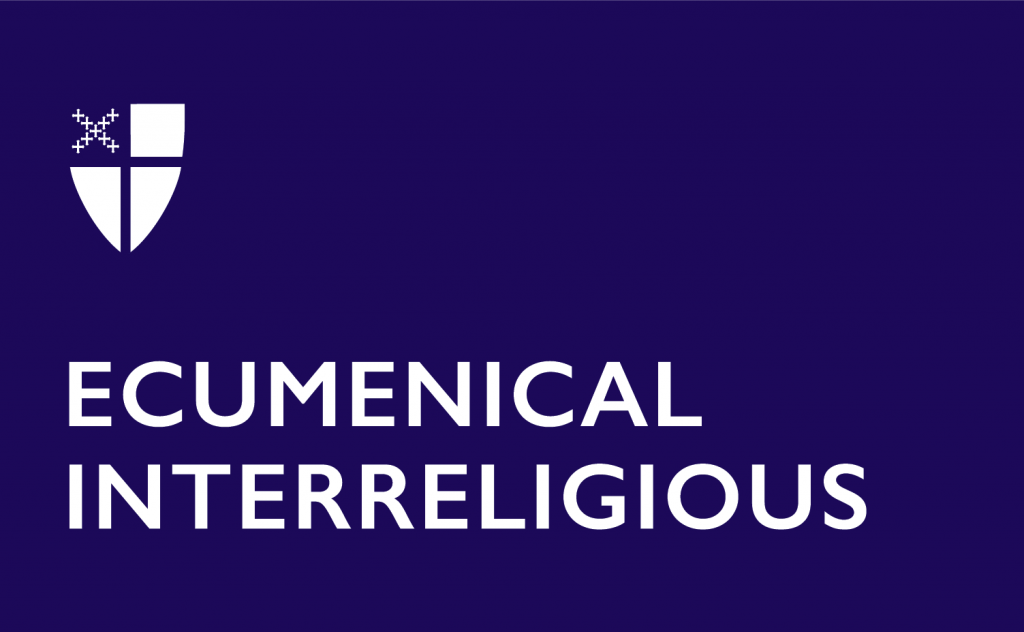Interns in the Ecumenical and Interreligious Office: An Interview with Salmoon Bashir
This summer, The Episcopal Church’s Office of Ecumenical and Interreligious Relations had the privilege of working with a new intern, Salmoon Bashir. Salmoon is a seminarian at Candler School of Theology. He was interviewed by another intern, Hank Jeannel, who is a second-year student at Princeton Theological Seminary.
Hank Jeannel: Start by telling us a little about yourself.
Salmoon Bashir: I am Salmoon Bashir, an international student from Pakistan, starting my third and last year in the M.Div. program at Candler School of Theology. I am also an aspirant for holy orders in The Episcopal Church. I found my calling to be a minister and work for Christian unity according to Jesus’ last prayer, “that they may all be one.” Honestly, I live in the heart of ecumenism as my wife, Mari, is from an Eastern Orthodox background. My wife and I are from different Christian denominations, traditions, and cultures. Both of us feel called to work for the unity of Christians and reconciliation, and that is what brought us this summer to The Episcopal Church’s Office of Ecumenical and Interreligious Relations.
HJ: What have you been working on this summer?
SB: Among many other things, I was working on creating informational “one-pagers” for the the College for Bishops. I was working on this project with Hank, another intern in the ecumenical office. We created ecumenical and interreligious one-pagers particularly for new bishops, with the hopes that if someone needs any information regarding The Episcopal Church’s relations with other Christian denominations, they can easily find it there. I hope bishops can use those documents to expand relationships and proclaim the good news, the love of Christ, which Presiding Bishop Michael Curry always calls the Jesus movement; it is only possible by building partnerships with other churches.
HJ: Do you have any highlights from your ecumenical engagement throughout New York City this summer?
SB: As I mentioned, my passion is to work for Christian unity and reconciliation. Throughout the summer, I was meeting with people and learning about Episcopal Church relations with the Evangelical Lutheran Church in America, the United Methodist Church, the Greek Orthodox Church, and more. It is difficult to pick one, but if I had to, I would highlight the wonderful time I had with the ecumenical leadership from the Greek Orthodox Church. I remember on the feast day of Saint Bartholomew, according to the Eastern Church calendar, as an ecumenical gesture, St. Bartholomew’s Church – an Episcopal church in New York – gave their space to the Greek Orthodox Church in America to hold a service there. It was such a joy for my me and my wife (who is from an Orthodox background, as I mentioned earlier) to be part of the wonderful liturgy and also to witness two Christian traditions opening doors and hearts to each other.
HJ: What else have you been up to this summer?
SB: During my time in New York City, I had a chance to see Episcopal churches outside my own diocese. Every Sunday, my wife and I were visiting different churches and seeing the diversity within The Episcopal Church. Also, I had a chance to get to know the organization Religions for Peace USA. For those who don’t know, RFPUSA is a national interreligious affiliate of Religions for Peace, International, which supports nearly 100 national and regional global affiliates. I loved the work they are doing for interfaith harmony, particularly around the issues of nationalism, xenophobia, and more. This summer I also closely observed the relationships between The Episcopal Church and the Anglican Communion, particularly in the matters of human sexuality, racial reconciliation, economic and gender justice. I will bring all this, together with many other experiences I had in New York this summer, back with me to Atlanta, and I hope and pray that I will continue to contribute toward this important work that the ecumenical office has committed itself to.

